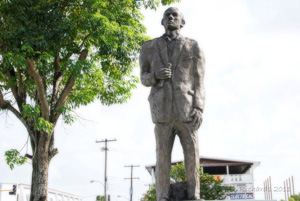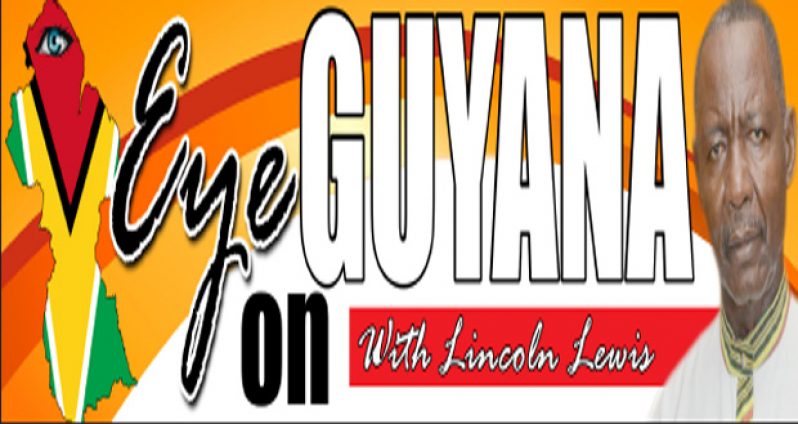THE trade union movement, while it is expected that it will have to fight for its voice to be heard and its place in society to be recognised, has made significant contributions in structuring and developing modern Guyana.
Even before the establishment of the International Labour Organisation (ILO) in 1919, it was the merchant class and the colonial government that dictated the nation’s laws and programmes. Many of these were against the interest of the masses and this exploitation gave birth to local trade unionism in 1905.
The issue of one man one vote, the people’s involvement in the political process, internal self-government, universal healthcare and education, eight-hour work day, gender equality, workers’ compensation, leave with pay, pension and other workers’ benefits were not given; they were fought for by the trade union. In the 2015 National Budget, the Guyana Trades Union Congress (GTUC) and Critchlow Labour College (CLC) have been allocated funds to continue playing their role in nation-building. These grants are returned after being taken away by anti-working class governments since 2002 (GTUC) and 2007 (CLC).
Over the years the GTUC has sought to influence and shape the political, economic and social development of Guyana for the benefit of workers (past, present and potential). Similar representation is done at the regional and international levels in pursuit of creating a global environment where workers’ rights and wellbeing are borderless and secured.
The CLC has over the years provided workers and trade union education. Workers’ education is defined as providing education to workers to build their capacity to perform at their place of work, while trade union education is seen as preparing cadres for the trade union movement at various levels. In both streams the college has produced men, women and children who have distinguished themselves. Among the alumni are leading members of the legal, academic, public sector, political and business communities. There is a correlation between education and prosperity, since an educated workforce contributes to the optimisation of production and productivity.
The Guyana Industrial Training Centre (GITC) is the brainchild of the GTUC. This institution came about as a result of the federation’s recognition of the shortage of skilled artisans. GTUC approached the American Federation for Labour and Congress of Industrial Organisation (AFL-CIO) in the USA, who assisted in the conceptualisation of this project. This project was made a reality through the blessings of the Forbes Burnham Government.
In housing, the labour movement has made significant contribution to ensuring workers are treated justly. The trade union fought for and achieved the Landlord and Tenant Act. Similar strides were made in home ownership.
TUCville in Georgetown and TUCber in New Amsterdam were made possible by the GTUC. The Kwakwani, Ituni and Wisroc housing schemes were done through negotiations by the Guyana Mines Workers Union (GMWU) and the Guyana Bauxite Supervisors Union (GBSU). Stevedore and Post Office were established through the initiative of the Guyana Labour Union (GLU) and the Postal and Telecommunications Workers Union (PTWU). Time off for workers to participate in the construction of their homes was negotiated between the Government and GTUC.
In the laws of Guyana the GTUC is named as the federated body. In the free trade union world, the GTUC is recognised by the International Trade Union Confederation (ITUC) as the legitimate national federation. This international recognition means that any activity that is done by the ILO or any arm of the United Nations, in Guyana or the Caribbean, the GTUC will have to be a participant.
Before there was any mass-based political party, there were Hubert Nathaniel Critchlow and the trade union movement. In fact, the political parties embraced and ran with the trade union’s programmes and agenda. Clearly laid out at Articles 38, 147 and 149C in the Constitution of Guyana are the trade union’s rights, roles and responsibilities in society. This designated social partnership in nation building and development is shouldered with great seriousness. This is further understood through the prism that the current philosophical structure upon which Guyana sits, where the people/masses are placed as the centre of development and their rights and wellbeing taking primacy in furtherance of this, was conceptualised, developed and advanced by the labour movement.
Workers were never given a free meal. They, together with their trade union, fought for everything the Government has embraced from time to time. The grants that have been returned to the GTUC and CLC are reinvestments in the workers since these institutions have advanced their cause, stood up to the political establishment, worked with the political establishment, fought against the injustices of the political establishment and uncaring employers, and have remained society’s bulwarks.
The above notwithstanding, the trade union within recent time had undergone vicious assaults never before seen in post-independent Guyana. The Bharrat Jagdeo and Donald Ramotar regimes can be described as the worst period for the trade union movement. These men had put in place a structured programme to undermine the social conscience of this society, placed the welfare of the masses on the backburner, as they plundered the national resources, transgressed rights and violated laws, which the trade union in principle stands against.
Trade unions were forced to toe a line, which was often in contravention of trade union principles. Some leaders for their own survival refused to express an opinion different to that of the bullies of the regimes. Others opted for silence, while some joined the queue and used their privileged position in the movement for personal enrichment.
The GTUC has continuously fought against transgressions and violations and at times was the lone voice in society. Testament to such steadfastness is the current national platform where rights and the rule of law are viewed as pivotal to good governance, national unity, development and peaceful co-existence. The position was conceptualised and advanced by the GTUC in a concerted manner since 2002. The last 13 years the GTUC’s letterhead has emblazoned ‘Advancing Rights and the Rule of Law’. The GTUC and its attendant arms are here to stay and shall continue to give direction and leadership to this nation, guided by the universal principles held sacred.
The GTUC and its attendant arms are here to stay and shall continue to give direction and leadership to this nation, guided by the universal principles held sacred.
Before there was any mass-based political party, there were Hubert Nathaniel Critchlow and the trade union movement. In fact, the political parties embraced and ran with the trade union’s programmes and agenda.
By Lincoln Lewis


.jpg)











